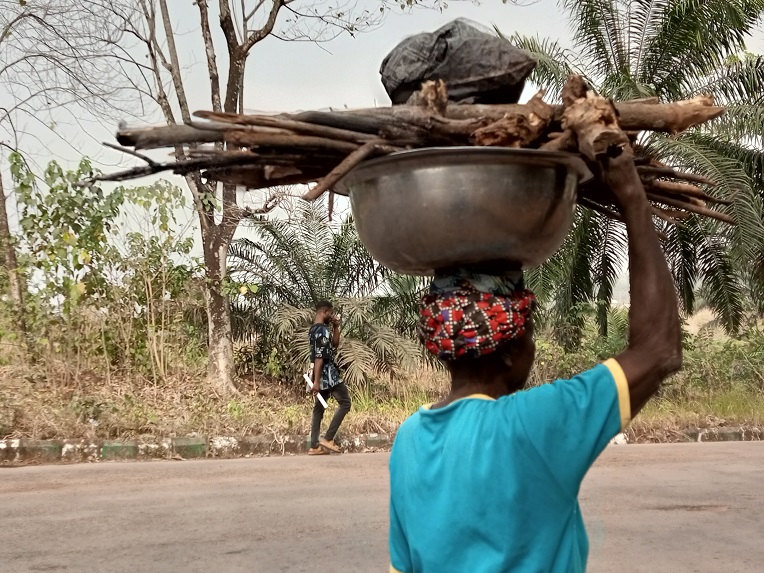
Kenya Electricity Generating Company (KenGen) has completed phase one of the 24 acres Ngong Forest Restoration Project.
The Project is to plant 7,000 indigenous trees around a degraded site at the Ngong Hills Forest Power Station where KenGen generates 25.5MW of electricity from wind power. The initiative was started in October 2018 and is in line with the companies Environmental Conservation Programme and Corporate Environmental Sustainability Policy.
According to the Ngong forest restoration phase one completion report: “the project’s final milestone verification for milestone 3 final quarter was carried out on 21st June 2021 followed by a final Project Implementation Team meeting at Ngong project site where 7,134 seedlings were verified as surviving against a target of 7,000 seedlings thus a 100% success achieved rehabilitation an area covering 10.7 acres.”
KenGen Managing Director/CEO, Rebecca Miano, explained the company has aligned itself to a climate action agenda and thus rolled out various environmental conservation projects across the country to help slow down the effects of climate change.
“As an organisation committed to ensuring environmental sustainability in our areas of operations, we shallincluding our deployment of green energy power projects including keep on ensuring that the plans for subsequent phases in the Ngong forest restoration project are delivered successfully.
“This will complement other climate action efforts, construction of 83MW Olkaria I unit 6, which is almost complete,” said Miano.
Looking beyond only planting trees
Phase two of the Project will be to restore an additional ten hectares within the KenGen lease area at Ngong during the 2021/2 financial year. This will be achieved through planting, projection, replacing and maintenance of 10,000 indigenous tree seedlings.
Joshua Were, KenGen Environment and Sustainable Development Manager: “Our aim is 100% growth rate. We do not only plant trees but also go a step further to ensure that all the trees are well taken care of and natured to maturity.”
KenGen has signed a Memorandum of Understanding with partners including Kenya Wildlife Services. They have to carry out conservation and management activities in the Ngong Forest and carry out the mitigation measures identified in the Environmental and Social Impact Assessment study for the proposed construction of the 10MW Ngong Phase IIIA wind project at Ngong Hill.
The project supports the company’s commitments towards the NETFUND 2 billion campaign through which it has pledged to plant and grow 400 seedlings a year.
Forest restoration and addressing land degradation through better data management
The Food and Agriculture Organisation of the United Nations (FAO) and Finland have signed an agreement to enhance the capacity of African countries to handle forest resources and data management.
The $7million multi-donor project will be implemented jointly by the FAO Global Forest Resources Assessment and National Forest Monitoring teams over a period of four years.
FAO deputy director-general Maria Helena Semedo: “This important collaboration with Finland will help scale up capacities for innovative and accurate forest monitoring. With a spotlight on empowering women in Africa, this project will bring our expertise and tools where they are most needed.”
Finland’s contribution will support extensive and inclusive capacity building activities and equal access to training events, tools and material. It will enable the provision of tools and techniques that will allow countries to collect and analyse up-to-date information on forest resources as well as report on them to the national and international processes and conventions in a transparent manner on an annual basis.
The project will support Glasgow Leaders’ Declaration on Forests and Land Use which was announced at COP26. Endorsed by more than 140 countries that account for more than 90% of the world’s forests, the Declaration commits its parties to cooperate to halt and reverse forest loss and land degradation by 2030.
The Global Forest Resource Assessment is a comprehensive assessment of forests and forestry, based on official country statistics. In less developed countries the data is often outdated and derived using inconsistent methodologies. FAO’s National Forest Monitoring initiative support countries to produce updated quality information on forest resources.

Kenya Electricity Generating Company (KenGen) has completed phase one of the 24 acres Ngong Forest Restoration Project.
The Project is to plant 7,000 indigenous trees around a degraded site at the Ngong Hills Forest Power Station where KenGen generates 25.5MW of electricity from wind power. The initiative was started in October 2018 and is in line with the companies Environmental Conservation Programme and Corporate Environmental Sustainability Policy.
According to the Ngong forest restoration phase one completion report: “the project’s final milestone verification for milestone 3 final quarter was carried out on 21st June 2021 followed by a final Project Implementation Team meeting at Ngong project site where 7,134 seedlings were verified as surviving against a target of 7,000 seedlings thus a 100% success achieved rehabilitation an area covering 10.7 acres.”
KenGen Managing Director/CEO, Rebecca Miano, explained the company has aligned itself to a climate action agenda and thus rolled out various environmental conservation projects across the country to help slow down the effects of climate change.
“As an organisation committed to ensuring environmental sustainability in our areas of operations, we shallincluding our deployment of green energy power projects including keep on ensuring that the plans for subsequent phases in the Ngong forest restoration project are delivered successfully.
“This will complement other climate action efforts, construction of 83MW Olkaria I unit 6, which is almost complete,” said Miano.
Looking beyond only planting trees
Phase two of the Project will be to restore an additional ten hectares within the KenGen lease area at Ngong during the 2021/2 financial year. This will be achieved through planting, projection, replacing and maintenance of 10,000 indigenous tree seedlings.
Joshua Were, KenGen Environment and Sustainable Development Manager: “Our aim is 100% growth rate. We do not only plant trees but also go a step further to ensure that all the trees are well taken care of and natured to maturity.”
KenGen has signed a Memorandum of Understanding with partners including Kenya Wildlife Services. They have to carry out conservation and management activities in the Ngong Forest and carry out the mitigation measures identified in the Environmental and Social Impact Assessment study for the proposed construction of the 10MW Ngong Phase IIIA wind project at Ngong Hill.
The project supports the company’s commitments towards the NETFUND 2 billion campaign through which it has pledged to plant and grow 400 seedlings a year.
Forest restoration and addressing land degradation through better data management
The Food and Agriculture Organisation of the United Nations (FAO) and Finland have signed an agreement to enhance the capacity of African countries to handle forest resources and data management.
The $7million multi-donor project will be implemented jointly by the FAO Global Forest Resources Assessment and National Forest Monitoring teams over a period of four years.
FAO deputy director-general Maria Helena Semedo: “This important collaboration with Finland will help scale up capacities for innovative and accurate forest monitoring. With a spotlight on empowering women in Africa, this project will bring our expertise and tools where they are most needed.”
Finland’s contribution will support extensive and inclusive capacity building activities and equal access to training events, tools and material. It will enable the provision of tools and techniques that will allow countries to collect and analyse up-to-date information on forest resources as well as report on them to the national and international processes and conventions in a transparent manner on an annual basis.
The project will support Glasgow Leaders’ Declaration on Forests and Land Use which was announced at COP26. Endorsed by more than 140 countries that account for more than 90% of the world’s forests, the Declaration commits its parties to cooperate to halt and reverse forest loss and land degradation by 2030.
The Global Forest Resource Assessment is a comprehensive assessment of forests and forestry, based on official country statistics. In less developed countries the data is often outdated and derived using inconsistent methodologies. FAO’s National Forest Monitoring initiative support countries to produce updated quality information on forest resources.












